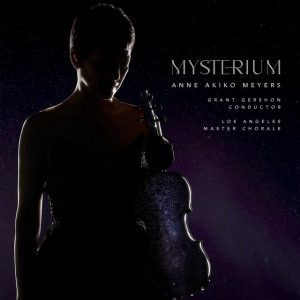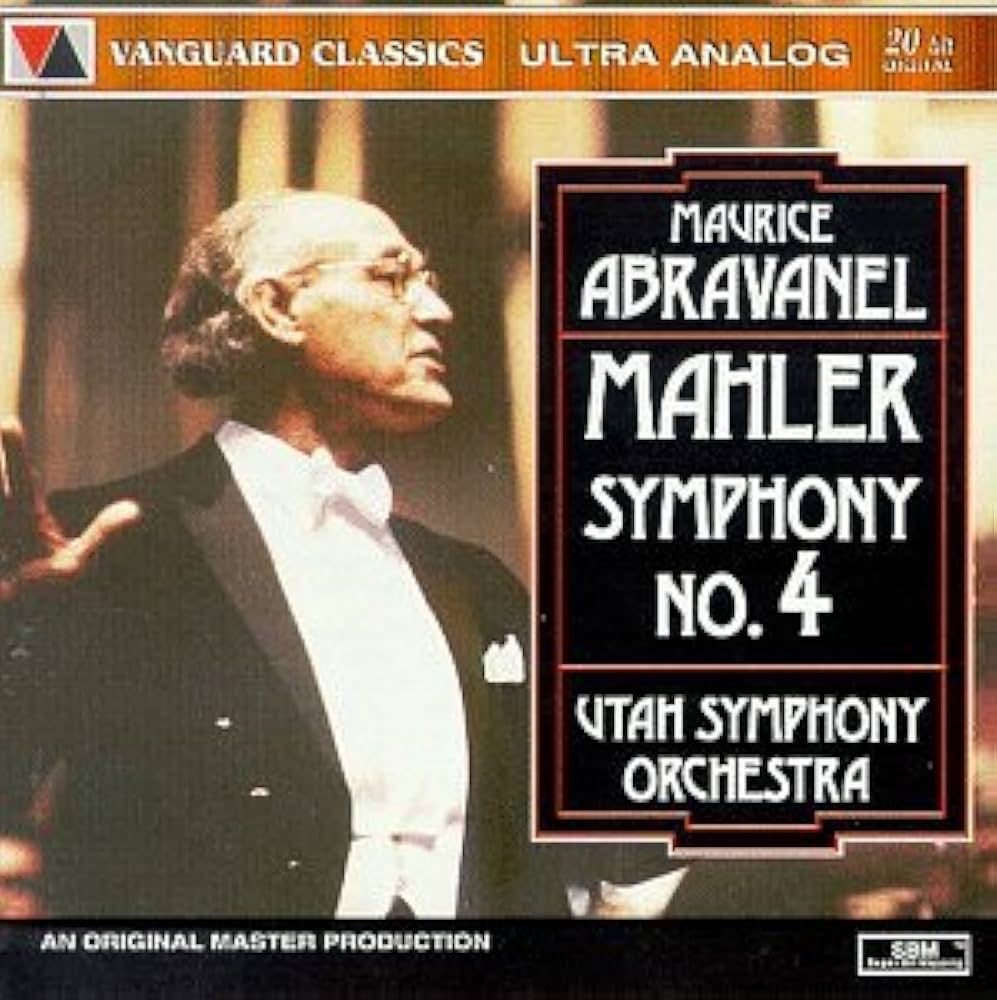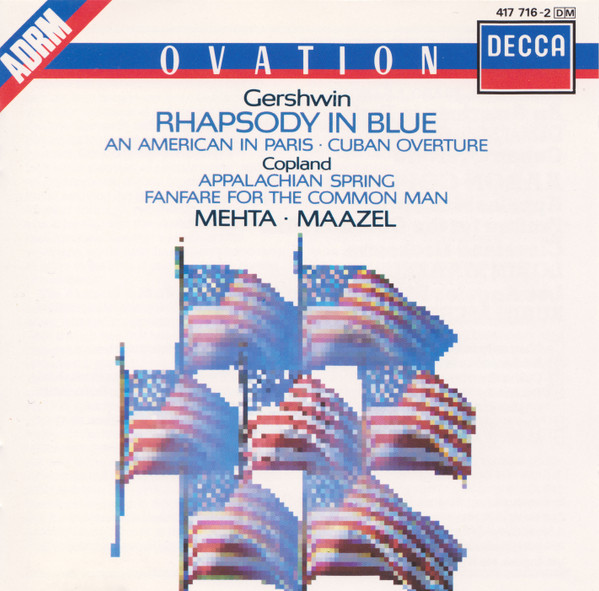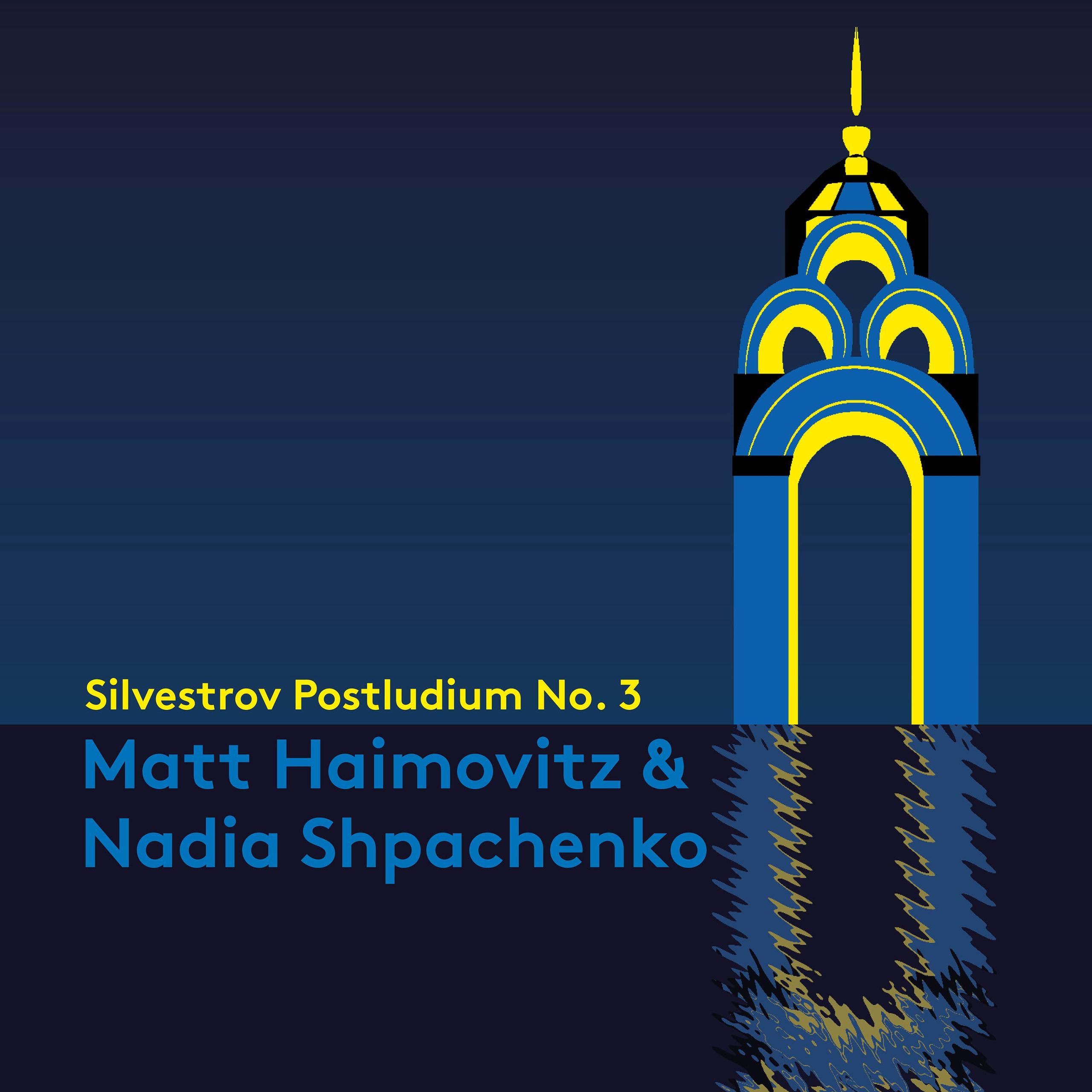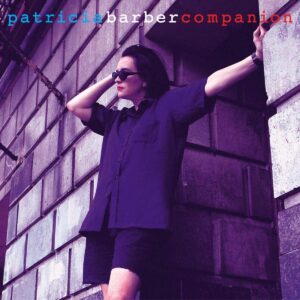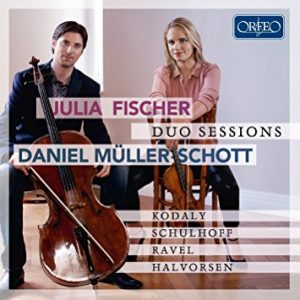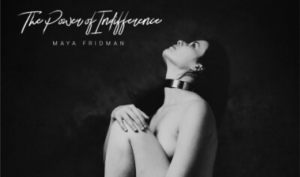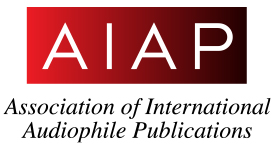J.S. BACH: Jesu, Joy of Man's Desiring (arr. Samuel Adler); Sheep May Safely Graze; Wachet auf (both arr. Len Rhodes). LAURIDSEN: O magnum mysterium (arr. Grant Gershon and Morten Lauridsen).
Anne Akiko Meyers, violin; Los Angeles Master Chorale/Grant Gershon (with Jaebon Huang, organ). Avie Records AV 2585 (WAV download, approx. 19 mins.)
Last issue, I was taken aback by how long ago Cala Records had come-and-gone as a classical-recording outfit. This issue, I get to repeat the experience: Avie Records, to me still a "new" independent label, celebrated its twentieth anniversary not long ago!
Unlike Cala, Avie still thrives. Its release lists favor chamber-scaled and solo works, but it's always kept a significant orchestral presence. In the early years, Semyon Bychkov and the WDR Symphony weighed in with Mahler, Shostakovich, and Richard Strauss; more recently, Kenneth Woods and his Orchestra of the Swan have been persuasive advocates for Austrian composer Hans Gál. Amd all of the company's projects, whether larger- or smaller-scaled, maintain the company's reputation for high quality of both performance and sonics.
Mysterium, however, is an unusual issue even for Avie. The niche-y repertoire, with its newly made arrangements, suggests one of those pandemic projects that patched the artists together from across great distances; so does the separate halo of ambience around the violinist's tone. But, no, the recordings were apparently made "for real," with everyone involved, including the Los Angeles Master Chorale, in the same room.
In this instance, you'll know from general observations whether this is for you. Earlye Musicke purists would call Meyers's vibrant Bach playing "Romantic," but it isn't: it's just warm and heartfelt, personalized rather than machine-tooled. In Wachet auf, her trenchant attack on the first phrase is unexpected, but she answers herself more gently in that upper octave. I could have done without some of the other upward-octave alterations, but Meyers executes everything beautifully, with pure intonation and silvery tone.
The estimable Los Angeles Master Chorale produces a full rather than a heavy sound. The basic sound and the ever-elusive "blend" are good, though I prefer more incisive, less soft-edged attacks. Similarly, while the overall sonority is transparent enough, I'd have liked clearer definition of the individual strands. Gershon's tempi struck me as a bit fast in Wachet auf and the almost bouncy Sheep May Safely Graze. (Then again, my impression of those sheep comes, not from Bach's original, but from Walton's full-orchestra version in The Wise Virgins ballet—so my own notions may be somewhat askew.)
Lauridsen's fuller choral harmonies contrast sharply with the three Bach favorites. I'm not sure that his O magnum mysterium, a contemporary favorite, needed to be outfitted with a wordless opening section; in fact, I'm not convinced this arrangement adds anything to the piece. The climaxes actually deliver more of a wallop in the original "plain" choral version.
In the Bach pieces, Jaebon Huang's organ playing supports the Chorale well, though I thought I heard some passing "dirty" notes—perhaps slight miscoördinations with the other performers—in the Sheep arrangement. The program is short, rather like an old EP, but iTunes, for one, is offering it at a low price.
stevedisque.wordpress.com/blog




